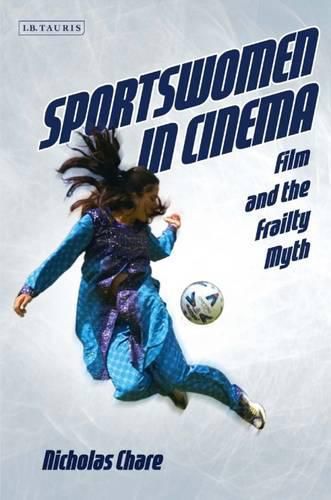Readings Newsletter
Become a Readings Member to make your shopping experience even easier.
Sign in or sign up for free!
You’re not far away from qualifying for FREE standard shipping within Australia
You’ve qualified for FREE standard shipping within Australia
The cart is loading…






Sportswomen in Cinema considers both documentary and fiction films from a variety of periods and cultures, by directors including Kathryn Bigelow, Gurinder Chadha, Im Soon-rye, George Kukor, Ida Lupino, and Leni Riefenstahl. Drawing from psychoanalytic and phenomenological theories, the book presents a series of landmark close readings of films featuring a variety of different forms of athletic activity, including baseball, basketball, bodybuilding, boxing, climbing, football, rollerderby, surfing, tennis and track and field. In focusing on themes such as gesture, screen space and sound, it moves beyond a purely narrative analysis of sports films. What’s more, as well as building on existing scholarship in sports studies to argue that sport should always be conceived of as more than simply competitive, the book also contributes to ongoing efforts in film theory to foster new feminist discourses on sexual difference. The ideas of thinkers such as Judith Butler, Bracha Ettinger, Griselda Pollock and Michel Serres are employed to explore how films featuring female athletes reflect changing perspectives on femininity and sexuality and also, potentially, contribute to transforming our perceptions about sportswomen and cinema. Sportswomen in Cinema is an important addition to the literature of film studies, gender studies and sports studies.
$9.00 standard shipping within Australia
FREE standard shipping within Australia for orders over $100.00
Express & International shipping calculated at checkout
Sportswomen in Cinema considers both documentary and fiction films from a variety of periods and cultures, by directors including Kathryn Bigelow, Gurinder Chadha, Im Soon-rye, George Kukor, Ida Lupino, and Leni Riefenstahl. Drawing from psychoanalytic and phenomenological theories, the book presents a series of landmark close readings of films featuring a variety of different forms of athletic activity, including baseball, basketball, bodybuilding, boxing, climbing, football, rollerderby, surfing, tennis and track and field. In focusing on themes such as gesture, screen space and sound, it moves beyond a purely narrative analysis of sports films. What’s more, as well as building on existing scholarship in sports studies to argue that sport should always be conceived of as more than simply competitive, the book also contributes to ongoing efforts in film theory to foster new feminist discourses on sexual difference. The ideas of thinkers such as Judith Butler, Bracha Ettinger, Griselda Pollock and Michel Serres are employed to explore how films featuring female athletes reflect changing perspectives on femininity and sexuality and also, potentially, contribute to transforming our perceptions about sportswomen and cinema. Sportswomen in Cinema is an important addition to the literature of film studies, gender studies and sports studies.